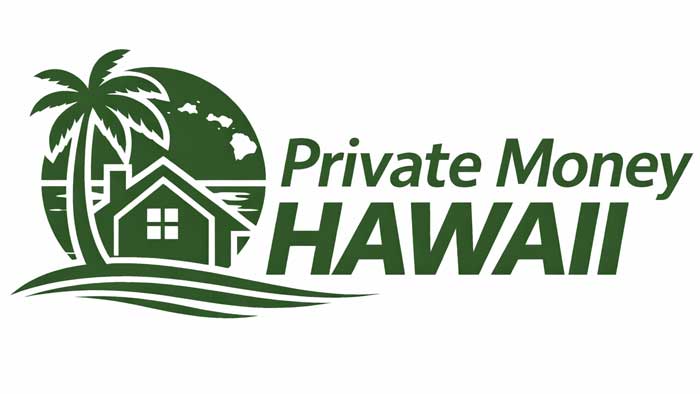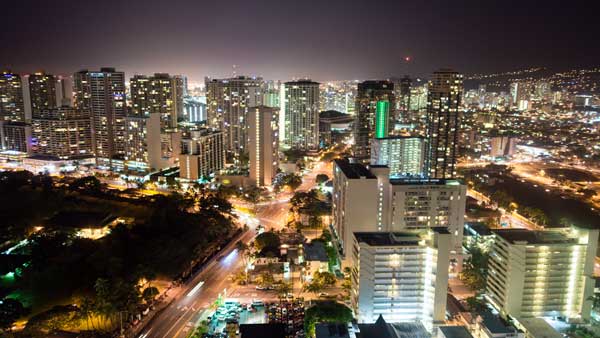Private Money Hawaii
Commercial Loan Requirements in Hawaii: What Investors Need (2025 Update)
Commercial real estate in Hawaii moves fast — and the investors who win deals are the ones who can close quickly, avoid bank red tape, and secure financing based on the property’s strength, not stacks of paperwork. That’s why private commercial loans are now one of the most popular funding options across Oahu, Maui, Kauai, and the Big Island.
But what exactly are the commercial loan requirements in Hawaii?
What documentation do lenders actually ask for?
And how does approval really work when you’re using private, asset-based financing instead of banks?
This guide breaks down every requirement you need to know in 2025, using simple explanations, Hawaii-local examples, and a clear investor-first approach.
Why Commercial Loan Requirements Are Different in Hawaii
Hawaii’s commercial market has unique challenges that impact what lenders look for:
- Older building stock
- Mixed-use zoning
- Leasehold properties
- High construction and insurance costs
- Strong warehouse and industrial demand
- Unique tourism-driven retail & hospitality markets
- Variations by island (Oahu ≠ Maui ≠ Big Island ≠ Kauai)
Because of these differences, traditional banks are often slow or conservative — especially for investors who want:
- Faster approvals
- Bridge funding
- Value-add acquisitions
- Non-stabilized assets
- Airbnb-adjacent commercial properties
- Tenant improvements
- Mixed-use buildings
Private commercial lenders solve these problems by focusing on asset-based underwriting, not bank-style borrower verification.
The REAL Commercial Loan Requirements in Hawaii (Private Lending Version)
Here are the actual requirements Hawaii investors need to meet in 2025.
Requirement #1 — Property Equity (Most Important)
Private commercial lenders approve deals based primarily on equity.
Typical Hawaii LTV Requirements:
- 65%–75% LTV for stabilized properties
- 60%–70% LTV for value-add or mixed-use
- 55%–65% LTV for hospitality, restaurant, or higher-risk assets
More equity = faster approvals + better pricing.
Example:
Commercial building in Honolulu:
- Purchase price: $1.5M
- Loan at 70% LTV: $1.05M
- Investor down payment: $450K
This approval could be done in 7–12 days with asset-based underwriting.
Requirement #2 — Net Operating Income (NOI) or Pro Forma
Unlike banks, private lenders evaluate:
- Current NOI (if stabilized)
- Pro forma NOI (if value-add or partially vacant)
They look at:
- Rent roll
- Existing leases
- Market rent potential
- Tenant mix
- Vacancy factor
- Operating expenses
NOI helps determine DSCR, rate tier, and max loan amount.
Requirement #3 — DSCR (Commercial-Level, More Flexible)
Commercial DSCR works differently from residential DSCR.
Private lenders allow:
- Lower DSCR
- Partial DSCR
- Pro forma DSCR
- Value-add DSCR assumptions
- Faster close with asset-forward underwriting
Typical Hawaii DSCR Requirements:
- 1.10–1.25+ for stabilized
- 1.00–1.10 for light value-add
- <1.00 allowed for heavy value-add with strong equity
Banks reject DSCR below 1.20.
Private lenders structure around it.
Requirement #4 — Basic Borrower Profile (Very Light)
Private commercial lenders require minimal personal documentation:
- Credit Score: 600–620+
- Valid ID or entity documents
- No major unresolved bankruptcies
- Business purpose certification
They do not require:
- Tax returns
- W-2s
- Pay stubs
- Debt-to-income ratios
- Global cash flow analysis
This is why commercial private lending is popular in Hawaii — especially among investors scaling portfolios.
Requirement #5 — Purchase Contract or Refinance Statement
Simple copies of:
- PSA for purchases
- Mortgage statements for refinance
- Payoff statements (if doing cash-out)
Private lenders do not require the lengthy bank disclosures.
Requirement #6 — Property Photos or Offering Memorandum
Lenders want to see the building’s:
- Condition
- Use type
- Tenant occupancy
- Exterior + interior
- Parking
- Mechanical equipment
- Roof condition (major in Hawaii weather)
If you have an OM from a broker, that makes approval even faster.
Requirement #7 — Appraisal or BPO (Fast-Track Options)
Private lenders accept:
- Commercial appraisal
- Commercial BPO (Broker Price Opinion)
- Drive-by valuation (case-by-case)
- Existing appraisal (if recent)
Appraisals are faster in Hawaii now, but private lenders can often:
Close before the assessment is fully completed if the deal is strong.
Banks will never do this.
Requirement #8 — Insurance (Critical in Hawaii)
Insurance affects underwriting more in Hawaii than most states.
Private lenders check:
- Hurricane insurance
- Flood zone status
- Lava zone maps (Big Island)
- Commercial liability
- Replacement costs
Insurance must be in place before funding, but underwriting is not slowed down because of it.
Requirement #9 — Clear Exit Strategy (Especially for Bridge Loans)
Private lenders want to know:
- Will you refinance?
- Will you stabilize the building?
- Will you lease up vacant units?
- Will you renovate and increase NOI?
- Will you resell within 12–24 months?
A strong exit strategy improves rate, LTV, and speed.
Example exit strategies:
- Stabilize mixed-use → refi
- Renovate warehouse → new long-term tenant
- Re-tenant Maui retail → sell or refi
- Improve NOI in Honolulu multifamily → long-term DSCR commercial loan
Hawaii Property Types That Qualify (2025)
Private commercial lenders finance almost every asset class:
- Multifamily (5+ units)
- Mixed-use
- Retail centers
- Office buildings
- Industrial warehouses
- Hospitality + boutique hotels
- Restaurants + commercial kitchens
- Land (case-by-case)
- Special-use buildings
- Storage facilities
- Automotive buildings
- Strip malls
- Medical office
If it produces income or has value-add potential → it’s financeable.
Hawaii-Specific Requirements Investors Need to Know
1. Leasehold land rules apply
Many private lenders finance leasehold; banks usually avoid it.2. STR commercial overlays affect underwriting
Especially in hotel/resort corridors.3. Insurance heavily affects cap rate assumptions
4. Building age matters
Honolulu has many pre-1970 structures.5. Mixed-use is common on Oahu
Banks hate mixed-use — private lenders love it.Why Local Underwriting Matters
Hawaii has unique nuances that mainland lenders fail on:
- Leasehold structure
- High HOA variations
- Lava zones
- Hurricane/flood insurance
- Local commercial vacancy patterns
- Unique submarkets (Kalihi warehouse ≠ Kaka‘ako retail)
Local underwriting = faster term sheets, fewer conditions, and better confidence in the property’s value.
Explore Hawaii Commercial Real Estate Loans to see how fast local underwriting accelerates approvals.
FAQ — Commercial Loan Requirements in Hawaii
Do private lenders require tax returns?
No.What credit score is required?
600–620 minimum.How fast can you close?
7–14 days for most deals.Do you fund mixed-use buildings?
Yes.What’s the down payment requirement?
25–35% depending on asset type.Can you finance partially vacant buildings?
Yes — value-add is very common.Do you lend on leasehold?
Case-by-case, but many private lenders do.Looking for fast, flexible financing in Hawaii? Private Money Hawaii offers 7–14-day closings, local underwriting, and asset-based approvals designed for investors who want to move fast and invest smarter across all islands.
Offering Rates Starts at 9%
At Private Money Hawaii, we are proud to fund commercial properties, multi-family residential, investment residential properties, fix and flip projects, land, and construction in Honolulu and across the Hawaii Islands.
Ready for a Honolulu Hard Money Loan? Fast, Flexible Financing Across Hawaii
Act Fast with a Trusted Local Partner
Secure funding in as little as 7–14 days. No bank delays—just Honolulu hard money loans designed for investors who need speed and certainty.
Tailored Loan Programs
From fix-and-flip loans in Oʻahu to bridge loans in Honolulu, DSCR rental financing, and construction loans across Hawaii, we customize terms around your project’s needs. With interest-only payment options, LTV up to 70%, and clear origination fees, you’ll have flexible funding that works for you.
Local Expertise You Can Trust
Led by veteran lender David Ige, with nearly 30 years of experience funding Hawaii investment property loans, we combine deep local insight with transparent terms to help investors succeed.
Private Money Hawaii
Address: 411 Hobron Ln #3912, Honolulu, HI 96815
Call: +1(808) 753-1204
Email: funding@privatemoneyhawaii.com
Looking for a reliable private money lender in Hawaii for your next real estate investment loan?
PRIVATE MONEY HAWAII
Private Money Hawaii
411 Hobron Ln #3912, Honolulu, HI 96815
Phone: (808) 753-1204
Email: funding@privatemoneyhawaii.com
Follow: facebook.com/PrivateMoneyHawaii/

